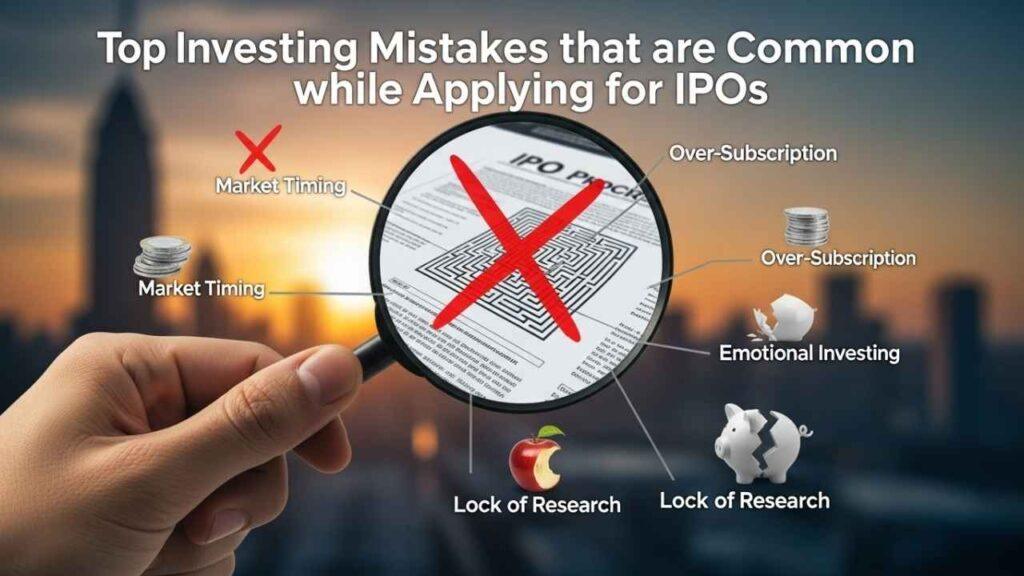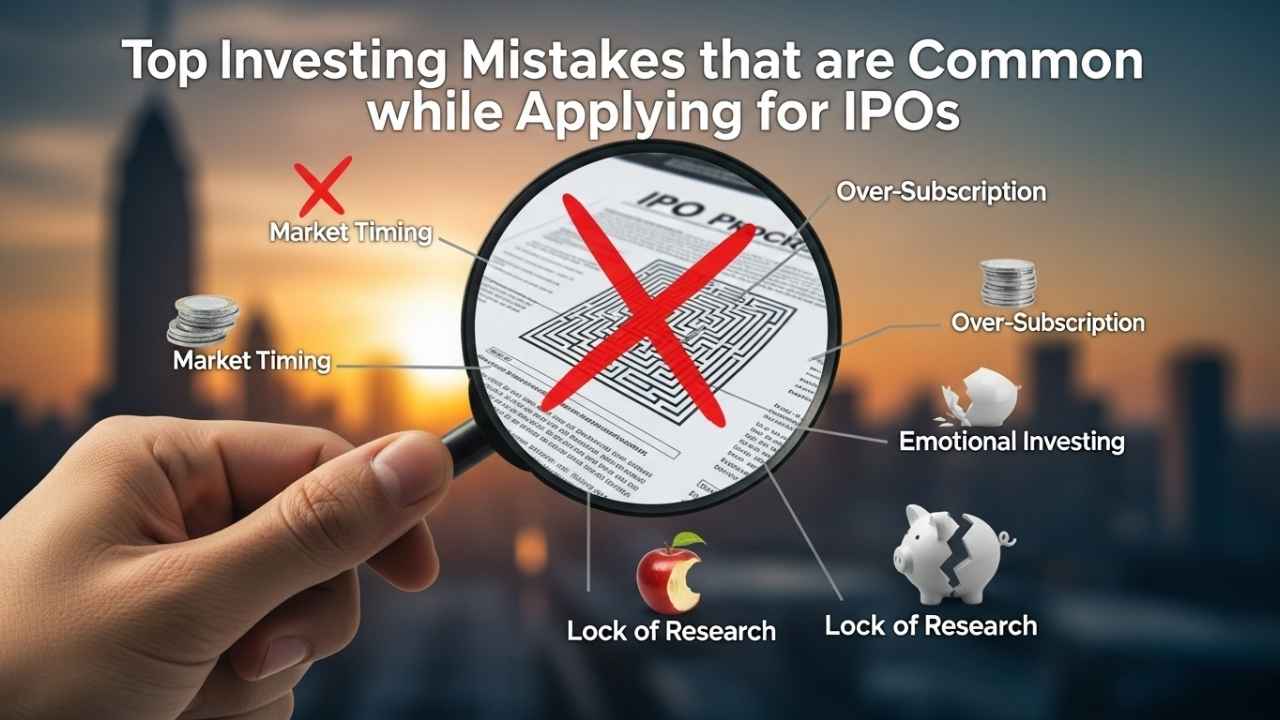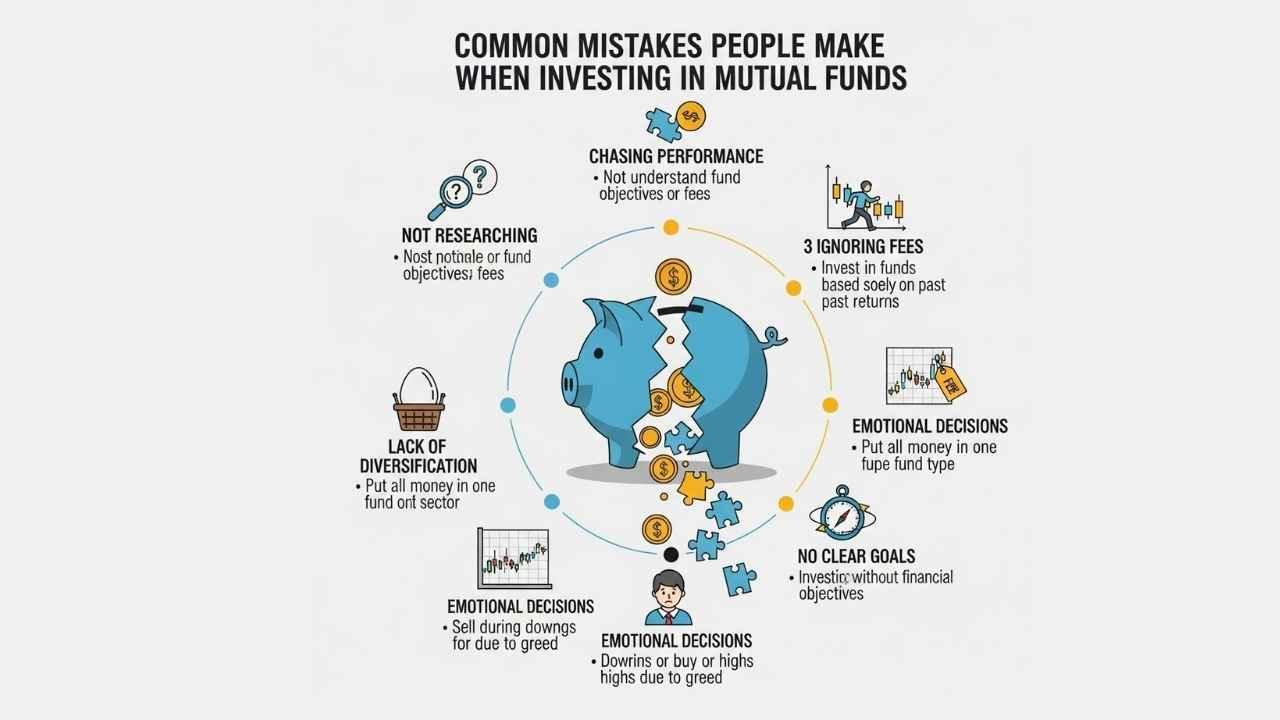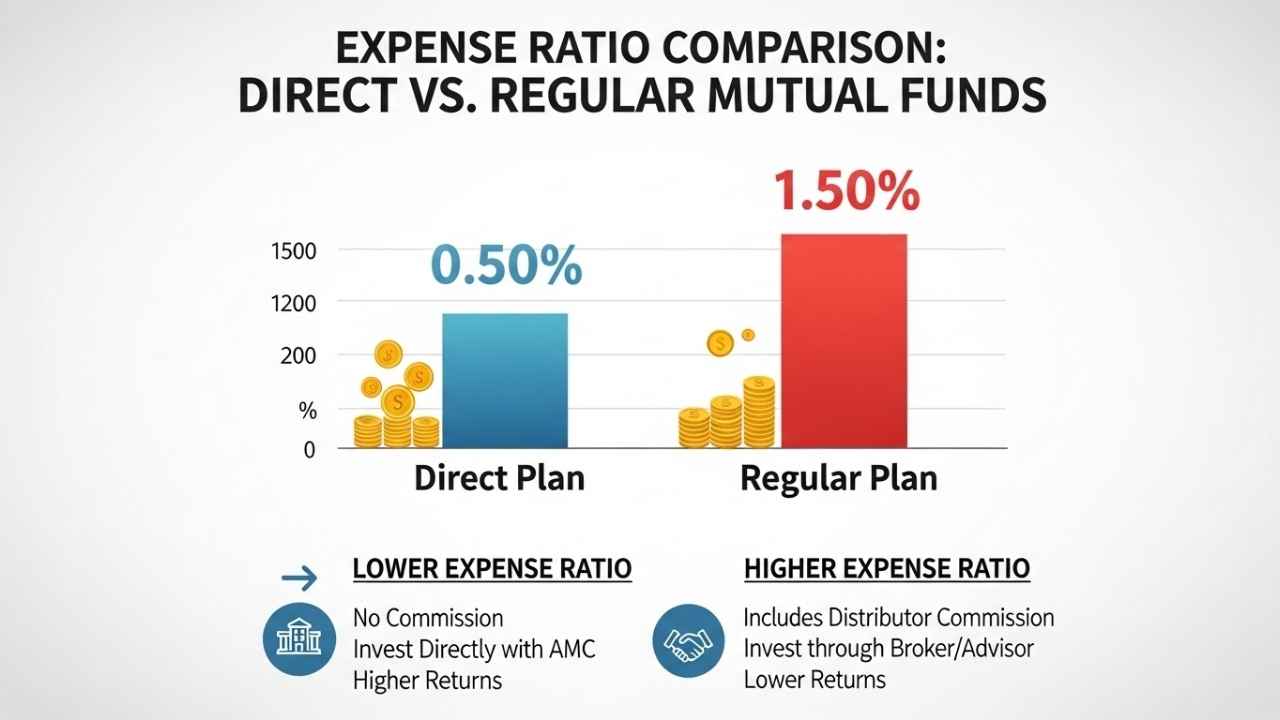Learn the most common IPO investing mistakes — from trusting rumours to ignoring allotment and subscription status — and simple, no-hassle steps to check your IPO allotment and subscription. Read this easy guide before you apply.
Initial public offerings (IPOs) excite many investors. An IPO is when a company issues its shares to the public for the very first time. Individuals apply for IPOs expecting huge returns. But not all IPOs make money soon — or at all. To assist you in making more informed decisions, here are the mistakes that individuals make while applying for IPOs and easy, simple steps to check IPO subscription and allotment status without any trouble.
An IPO matters to a company. It generates revenue and allows the public to own a stake in the business. As for you, an IPO can be an opportunity — but it also involves risk. Avoid these mistakes to protect your money and make smarter decisions.
Top mistakes that you should avoid

1. Not learning about the business
Just because a company is popular on social media or in the news does not indicate whether it is a good investment or not. Always research:
- How the company earns money.
- Its business model and competitors.
- What the company plans to do with the money from the IPO.
Don’t invest only because a post or article looks convincing.
2. Skipping the IPO subscription status
IPO subscription status indicates how many individuals have subscribed. If an IPO is highly subscribed, many applicants want shares, and you might receive few or none. Always review subscription levels during the time the IPO is open.. This helps you know the demand level.
3. Applying without a plan
Some investors apply to many IPOs hoping to get lucky. This is risky. Make a plan:
- Decide how much you can afford to lose.
- Choose IPOs after research.
- Don’t spread your money too thin simply hoping for quick gains.
4. Trusting grey market premium (GMP) too much
GMP is a number that sometimes circulates and suggests what listing-day gains might be. It can create false hopes. GMP is unofficial and changes fast. Never base your investment decisions only on GMP.
5. Not checking if the price is fair
A big or popular company can still list at a price that’s too high. Compare the IPO price with:
- Peers in the same industry.
- The company’s earnings (if available) and growth prospects.
If the price looks expensive for what the company earns or will earn, think twice.
6. Forgetting to check the IPO allotment status
Applying is only the first step. After the IPO closes, check whether you were allotted shares. If you were not allotted, your money should be refunded. Don’t assume — verify the allotment status.
7. Expecting sure profits on listing day
Many people expect instant profit when shares start trading. Some IPOs list at a higher price, but others list lower. Investing only for a quick listing profit is gambling. Aim for long-term value and credibility of the company.
8. Ignoring lock-in periods for big investments
Founders and big investors often have lock-in periods during which they cannot sell their shares. When the lock-in period ends, large sell-offs can affect the share price. Know when lock-ins end so you can plan for possible price changes.
How to check IPO subscription status: steps-by-steps
(Subscription status = how many applications have been received)
- Log in to your broker or investment app.
Most brokers show the IPO subscription numbers on the IPO page. - Visit the IPO’s official page or prospectus.
The prospectus will often list the issue code or registrar details you can use to track subscriptions. - Check stock exchange trackers.
Many exchanges show live or daily subscription numbers for open IPOs on their IPO/issue pages. - Look at the registrar’s updates.
The registrar for the IPO may publish subscription data. The registrar’s name appears in the IPO documents.
Tip: Check subscription status every day while the IPO is open to understand demand.
How to check IPO allotment status — easy, no-hassle methods
(Allotment status = whether you were given shares after the IPO)
- Check your broker or investment app
After allotment, most brokers update your account. Look for an “IPO allotment” or “My IPOs” section. - Log in to the registrar’s website
The IPO prospectus names the registrar. On the registrar’s allotment page, you can usually enter:- Your PAN (tax ID) or
- Application number / reference number or
- Demat account ID
Then view allotment status and refund details.
- Check your demat account
If shares are allotted, they will appear in your demat account on or before the listing date. - Watch your bank account for refunds
If allotment did not happen, your blocked amount (for ASBA or UPI) should be unblocked or refunded. Confirm with your bank or payment ledger. - Emails and SMS
Companies, registrars, and brokers often send allotment confirmations by email or SMS. Keep an eye on messages from these official sources.
Important: Always use your official application details (PAN, application number, or demat ID). Avoid unofficial pages or social channels.
Quick checklist before you apply for an IPO
- Read the IPO prospectus and key documents.
- Know the company’s business model and risks.
- Compare the price to similar companies.
- Decide how much you can afford to invest (and lose).
- Check IPO subscription numbers while the offer is open.
- Be prepared to check allotment status after the issue closes.
- Don’t rely only on social media or GMP.
- Plan beyond listing day — think long term.
Final words — smart investing is careful investing
Investing in IPOs can be smart if you research and plan. Avoid hype and quick fixes. Keep an eye on subscription and allotment status to know where you stand. Read all investing papers with care and consult a financial advisor if necessary. Remember: the stock market can be risky — make wise decisions to increase your money over time.
FAQs: Top Investing Mistakes to Avoid When Applying for IPOs
Q: How soon is allotment declared?
A: Allotment dates vary. Check the IPO timetable in the prospectus or the IPO page on your broker’s app for exact dates.
Q: What if my money is blocked during application?
A: If you used a blocking method (ASBA/UPI), the money will be blocked until allotment. If not allotted, the amount will be released or refunded.
Q: Can retail investors sell shares immediately?
A: Yes, retail investors can sell their shares after listing, unless a specific lock-in applies to those shares. Be aware of lock-in periods for promoters and big investors.












